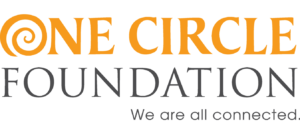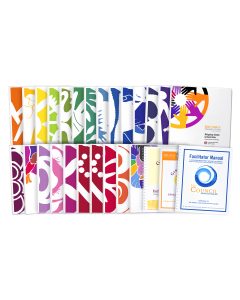
There is a Mental Health Crisis for Young People. Connection is Key.
Articles continue to pop up on my newsfeed about how the pandemic has been detrimental to the mental health of many, especially young people. The isolation, lack of connection with peers, and the uptick in violence within homes and racism within communities during the last 2+ years have led to a mental health crisis for youth.
According to the 2021 CDC Adolescent Behaviors and Experiences Survey (ABES) of 7,705 high school students, nearly half reported they persistently felt sad or hopeless and experienced emotional abuse in the home, while The Trevor Project’s 2021 Survey showed that 70% of LGBTQ+ youth stated that their mental health was “poor” most of the time or always during COVID-19.
In October 2021, the American Academy of Pediatrics (AAP) declared a national emergency in children's mental health. AAP President, Gabrielle A. Carlson said, “We are caring for young people with soaring rates of depression, anxiety, trauma, loneliness, and suicidality that will have lasting impacts on them, their families, their communities, and all of our futures. We cannot sit idly by”.
As someone who was a Girls Circle participant throughout high school and has worked at One Circle Foundation for most of my adult life, I know the power of this work. The positive impact made on the lives of young people through the circle experience can be completely life-altering. Sitting in a circle with a caring adult and a group of peers, sharing from the heart and listening, exploring life's tough topics in a safe space, experiencing positive rituals, learning how to show up for others — these experiences are a balm for loneliness.
CDC’s ABES study determined that “connectedness protects youth. The data showed that youth who felt more connected to people at their schools had better mental health; however, young people who experienced racism were less likely to benefit from this protection.”
There is a call to action here. As adults who care, we need to create opportunities for youth and teens to foster healthy connections and develop positive relationships. Girls Circle, The Council for Boys and Young Men, and Unity Circle are programs that we know can do this for youth and teens, whether they take place in person or online.
I hope that this pandemic is slowing to a crawl, it seems to be, but I know there is a possibility that it will rear its ugly head back up again. Regardless of the state of the pandemic, we must stay in action to support the mental health of young people, and especially youth of color and LGBTQ+ youth who are experiencing the negative effects of the pandemic at accelerated rates. Consider using the Mitigating Gender and Racial Bias: Intersectinoaiy and Allyship curricula, and attending the training by the same name. This particular program promotes developing healthy connection through circle while also exploring and addressing discrimination and bias; a powerful and needed combination.
We at OCF are grateful to the amazing community of circle and council facilitators and their supporters in all youth and family serving sectors who have stepped up and continued doing this important work through incredibly difficult and trying times. We have trained over 2,700 people since the beginning of the pandemic in circle facilitation, and we look forward to working with even more of you in the year ahead. I hope to see a vast and benevolent revolution of caring adults step up and facilitate circles, ensuring that all youth have the opportunity to be heard, to learn to listen deeply to others, to explore who they are in a safe environment, and to have the deep connection with others that they desperately need and absolutely deserve.








Leave a Reply